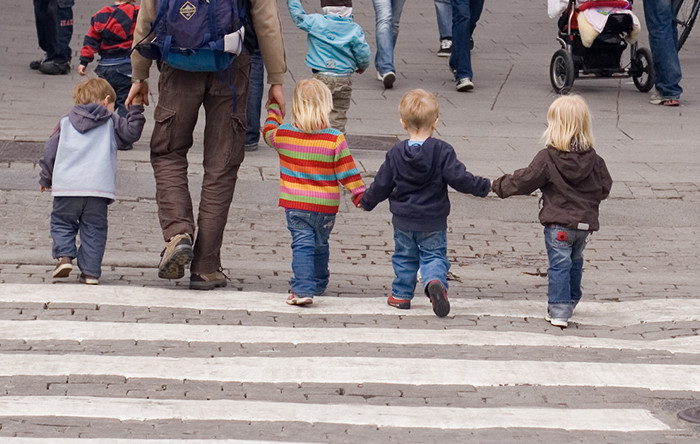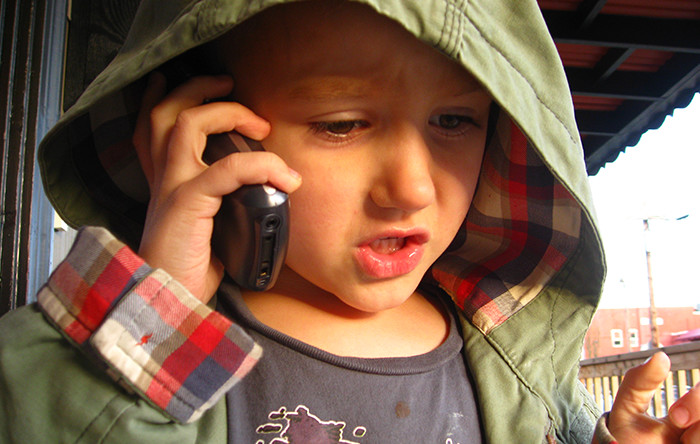You taught your child his or her ABCs, and how to count and share. Now, it’s time to make sure your child knows what to do in an emergency situation. No matter where you and your child are during the day—school, home, the store, or the mall—learn these safety basics your child should know.
You never know when you could get separated from your child, or your child could witness or be part of an emergency situation. By learning what to do in a variety of scenarios, your child will be able to perform in an emergency, even if you’re not around.
Read on to learn eight safety basics your child should know. Begin the teaching process today—it may just serve you well tomorrow.
- Use the buddy system
Whenever you are out in public, use the buddy system. Assign each child a buddy (mom, dad, a sibling, a friend) and explain that they should keep tabs on their buddy’s whereabouts. Turn it into a game, and call out “buddy check!” on occasion, and have everyone locate his or her buddy.

Also teach your children to freeze in place and yell their buddy’s name, or your name, if they get separated from you or your group. Calling “mom” or “dad” isn’t nearly as helpful as teaching your child to call your first and last name.
- Keep passwords protected
Passwords can ensure your child’s safety both online and at home. Teach your children to never to give out their passwords, no matter what—this includes email and social media passwords, in addition to the password to your home security system, etc. Tell them that even if a friend wants to sign into their account or get into your home for just a second, the answer is no. It’s better to be safe than sorry.
Also make sure your child is using passwords that are easy to remember, but not easy for others to guess. Then, have your child change his or her passwords every few months.
- Create a secret code
Another great safety strategy is having a family secret code, or password. Say your child is at the playground, in school, or at the mall. A stranger, or even a known adult, approaches and tells your child there’s been an emergency and mom or dad sent this person to pick the child up. The person can give your child the secret code, assuring your child it is safe to go with this person.
The code word chosen should be something easy for your child to remember, but something a stranger wouldn’t be able to guess. Bad secret codes are pet names, street names where you reside, and other information that could easily be learned about you.
- Don’t open the door for strangers
Whether your child is home alone, or mom and dad are home but otherwise engaged, teach kids the rules for opening the door to strangers.
First off, children should never answer the door blindly, without first asking who is on the other side, then visually confirming it is that person. Also teach kids not to trust someone who says they are with the cable, electric, or water company without asking to see a badge.
Also make sure your children know not to tell someone at the door they are home alone if that is the case.
Find out more by reading 9 things you should NEVER do when answering your front door.
- Trust your gut
Children have a strong sense of intuition, so teach them to trust their gut if they are ever in an uncomfortable or scary situation.
One of the best ways to practice is by role playing. Make it a game to pretend you are shopping and your child gets separated from mom or dad. Teach him or her to find a woman with children who is also shopping, and ask her to help. Tell the kids to trust their instincts on who might be able to help them.
Also, tell children not all adults are trustworthy. It’s important for kids to know not to discount a gut feeling that tells them not to spend time with an adult who makes them feel uneasy or uncomfortable.
- Call 911
Every once in awhile you’ll hear on the news a story about a small child who’s called 911 and saved a parent or loved one in a medical emergency. Your kid could be that kid, but first he or she needs to know how to dial 911, and what to say to explain when they reach the operator.

Talk to your child about what kinds of things are emergencies—fires, intruders, an unconscious adult. Point out things a child might consider a big deal, but don’t warrant a call to 911—cuts and scrapes, a missing toy or stuffed animal, or a fight with a sibling. Tell your child what happens when a call is placed to 911.
A trip to the local police or fire department can also reinforce some of the lessons about calling 911. Children should also be able to recite their address and their and their parents’ full names.
- Beware identity theft
Yes, even kids can become victims of identity theft. Children don’t always understand the dangers of posting personal information online and on social media sites. They also need to have strong passwords for their accounts, and change passwords routinely.
As a parent, it’s a good idea to routinely check your child’s credit, to make sure there isn’t any fraudulent activity going on.
Looking for more info on online safety? Read expert tips for keeping kids safe on social media.
- Have a neighborhood safe house
When an emergency happens in or around home, who can children turn to if you aren’t home, or you’re incapacitated? Pick a trusted neighbor and designate their home a “safe house.” Let your child know that if an emergency happens and he or she needs help, go to the safe house.
It may even be a good idea to pick a second safe house on your street or in your neighborhood, in case the first neighbor isn’t home.
Being prepared with knowledge on how to deal with an emergency is extremely beneficial if your child is ever in that situation. Read more on ways to protect your kids, even when you aren’t around.


